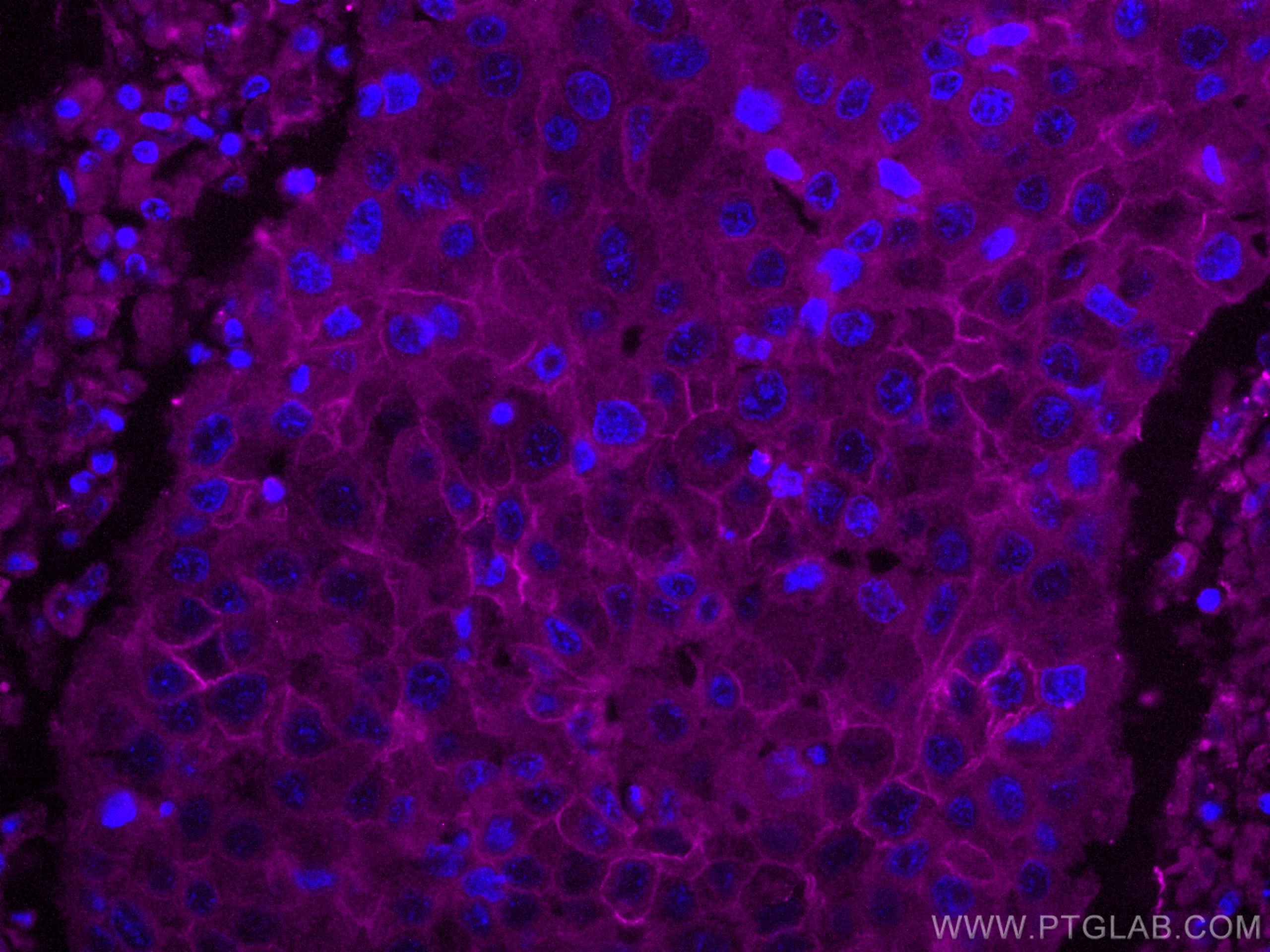Tested Applications
| Positive IF-P detected in | human breast cancer tissue |
Recommended dilution
| Application | Dilution |
|---|---|
| Immunofluorescence (IF)-P | IF-P : 1:50-1:500 |
| It is recommended that this reagent should be titrated in each testing system to obtain optimal results. | |
| Sample-dependent, Check data in validation data gallery. | |
Product Information
CL647-67768 targets ALCAM in IF-P applications and shows reactivity with Human samples.
| Tested Reactivity | Human |
| Host / Isotype | Mouse / IgG1 |
| Class | Monoclonal |
| Type | Antibody |
| Immunogen |
CatNo: Ag16892 Product name: Recombinant human ALCAM protein Source: e coli.-derived, PGEX-4T Tag: GST Domain: 28-400 aa of BC137097 Sequence: WYTVNSAYGDTIIIPCRLDVPQNLMFGKWKYEKPDGSPVFIAFRSSTKKSVQYDDVPEYKDRLNLSENYTLSISNARISDEKRFVCMLVTEDNVFEAPTIVKVFKQPSKPEIVSKALFLETEQLKKLGDCISEDSYPDGNITWYRNGKVLHPLEGAVVIIFKKEMDPVTQLYTMTSTLEYKTTKADIQMPFTCSVTYYGPSGQKTIHSEQAVFDIYYPTEQVTIQVLPPKNAIKEGDNITLKCLGNGNPPPEEFLFYLPGQPEGIRSSNTYTLTDVRRNATGDYKCSLIDKKSMIASTAITVHYLDLSLNPSGEVTRQIGDALPVSCTISASRNATVVWMKDNIRLRSSPSFSSLHYQDAGNYVCETALQEVE Predict reactive species |
| Full Name | activated leukocyte cell adhesion molecule |
| Calculated Molecular Weight | 583 aa, 65 kDa |
| Observed Molecular Weight | 90-100 kDa |
| GenBank Accession Number | BC137097 |
| Gene Symbol | ALCAM |
| Gene ID (NCBI) | 214 |
| RRID | AB_2920309 |
| Conjugate | CoraLite® Plus 647 Fluorescent Dye |
| Excitation/Emission Maxima Wavelengths | 654 nm / 674 nm |
| Form | Liquid |
| Purification Method | Protein G purification |
| UNIPROT ID | Q13740 |
| Storage Buffer | PBS with 50% glycerol, 0.05% Proclin300, 0.5% BSA, pH 7.3. |
| Storage Conditions | Store at -20°C. Avoid exposure to light. Stable for one year after shipment. Aliquoting is unnecessary for -20oC storage. |
Background Information
Activated leukocyte cell adhesion molecule (ALCAM, also known as CD166) is a cell adhesion molecule that belongs to the immunoglobulin superfamily. It is involved in cell-cell adhesion through homophilic and heterophilic (to CD6) interactions. ALCAM is widely expressed in a variety of normal tissues. Altered ALCAM expression has been associated with the differentiation state and progression in some neoplasms including melanoma, prostate, colorectal, and breast cancers (PMID: 20461761; 18172759).
Protocols
| Product Specific Protocols | |
|---|---|
| IF protocol for CL Plus 647 ALCAM antibody CL647-67768 | Download protocol |
| Standard Protocols | |
|---|---|
| Click here to view our Standard Protocols |




